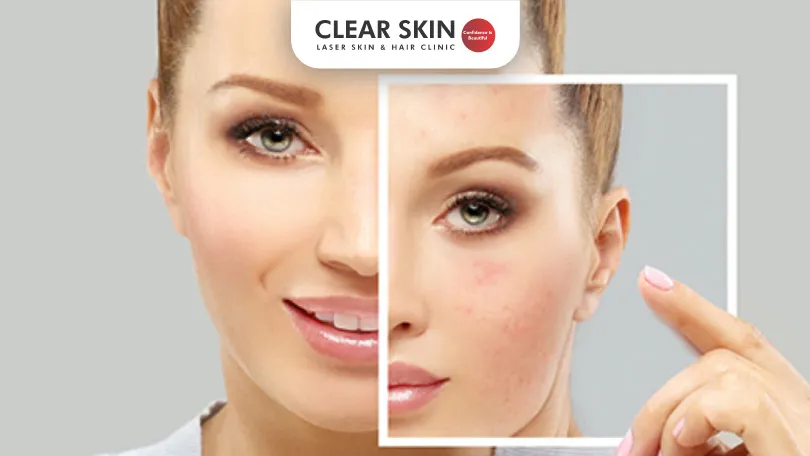Effective Oral Treatments for Melasma
Reviewed By: Dr. Manali Shah
Updated on: 31st October, 2022

Are you self-conscious about the dark patches on your face caused by melasma? Are you tired of trying different treatments with no success?
Well, melasma is a common and frustrating skin condition that affects a large number of people, and finding effective treatments can be a daunting task.
While topical treatments may help, they may not be enough to achieve the desired results. That’s where oral treatments come in. Knowing which is right for you can be overwhelming, and you want to ensure the treatment is effective and safe for your skin.
In this article, we will explore some of the oral treatments for melasma that help reduce dark spots. Keep reading!
Table Of Content
-
Oral Treatment for Melasma
- Conclusion
Oral Treatment for Melasma
Melasma is a common skin condition that causes dark brown or grey patches on the face. Melasma occurs due to the overproduction of melanin. While the exact cause of melasma is not known, it is believed to be triggered by hormonal changes during pregnancy or while taking birth control pills, UV damage due to sun exposure, and genetics.
Several treatment options, like topical creams, laser therapy, and PRP treatment are commonly advised. However, melasma doctors in Pune sometimes prescribe oral medications to reduce skin pigmentation.
Here are the most common oral medicines used for melasma treatment:
Tranexamic Acid
Tranexamic acid is an effective medication for melasma treatment that can be used topically and orally. According to the studies, tranexamic acid can reduce the over production of melanin, by changing how cells communicate and reducing the activity of an enzyme called tyrosinase.
When taken orally, tranexamic acid can help to lighten the appearance of melasma and other forms of hyperpigmentation. While the safety and effectiveness of oral tranexamic acid for melasma are still being studied, early results suggest that it can be an effective treatment option, particularly when combined with other topical treatments and sun protection measures.
Isotretinoin
While isotretinoin is commonly used to treat severe acne, there is limited evidence to support its use as an oral treatment for melasma.
Sebum production can contribute to inflammation in the skin, which can exacerbate melasma. Isotretinoin works by binding to and activating specific receptors in the skin, which leads to decreased sebum production and changes in the composition of sebum.
While isotretinoin for melasma may reduce the appearance of those dark spots, it is not typically used for this purpose due to its potential side effects, including dryness and irritation of the skin, lips etc. Moreover isotretinoin is contraindicated in pregnant women and should be avoided by women trying to conceive. For these reasons, isotretinoin for melasma generally is not considered a first-line treatment.
Melatonin
Melatonin is a hormone the pineal gland produces that regulates the body’s sleep-wake cycle. In addition to its role in sleep, melatonin has been shown to have antioxidant and anti-inflammatory effects, which may be beneficial in treating certain skin conditions, including melasma.
The exact mechanism by which melatonin may work in melasma is not fully understood, but it is thought to be related to its antioxidant properties. Melatonin has been shown to scavenge free radicals and reduce oxidative stress in the skin, which can help to reduce the appearance of hyperpigmentation.
While there is limited evidence to suggest that melatonin oral treatments for melasma may help reduce the appearance of melasma, the research in this area is still in its early stages, and the results are mixed. Some studies have reported that melatonin can reduce the severity of melasma and improve skin tone, while others have found no significant effect
Glutathione
Glutathione is a naturally occurring antioxidant produced by the liver and is found in high concentrations in some fruits, vegetables, and meats. It has been suggested that oral glutathione supplementation may have a beneficial effect on skin health, including the treatment of melasma. However, the evidence for the use of oral glutathione in treating melasma is limited and conflicting.
Along with glutathione and melatonin, additional oral antioxidants and supplements like beta carotene, astaxathin, vitamin C, vitamin E, and others can work as oral sunscreens and help minimise melasma.
The oral treatments for melasma effectively reduce melasma symptoms. However, there is very little evidence to support it. Consulting a dermatologist can help you determine if oral medicines suit you.
Do You Know?
Roughly 250 Patients Are Treated
Everyday By These Dermatologists
(You are one click away from flawless skin)
Meet Our Dermatologist!
Conclusion
Melasma is a common skin condition that can be frustrating to manage. While topical agents and chemical peels are the preferred methods for treating melasma, some oral treatments have been suggested as potential options. These include tranexamic acid, isotretinoin, melatonin, and glutathione.
However, the evidence for the effectiveness of these oral treatments for melasma is mixed, and potential safety concerns are associated with their use. Therefore, it is important to consult with a dermatologist before starting any new treatment for melasma.
Our dermatologists’ expertise and advanced technology at Clear Skin Clinics Pune can help you manage your melasma and achieve clear, radiant skin.
So, if you are struggling with melasma and looking for professional help in Pune, consider Clear Skin Clinics Pune and take the first step towards healthier, clearer skin.
Further Reading
Do Acne Scar Removal Creams Really Work?
Discover do acne scar removal creams really work. Learn about the best ingredients and treatments to fade acne scars at Clear Skin Pune
Acne Pustules: How to Get Rid of Pustules?
Learn about causes, symptoms, and treatments from Dr. Dhanraj Chavan.
Is Tretinoin Cream Safe for Melasma? Tips and Usage Guide
Discover how tretinoin cream can safely treat melasma.
Unveiling the Potential of Face Packs for Acne Scars
Discover how homemade and customized face packs can help lighten acne marks and rejuvenate your skin.
Have thoughts? Please let us know
We are committed not only to treating you, but also educating you.






